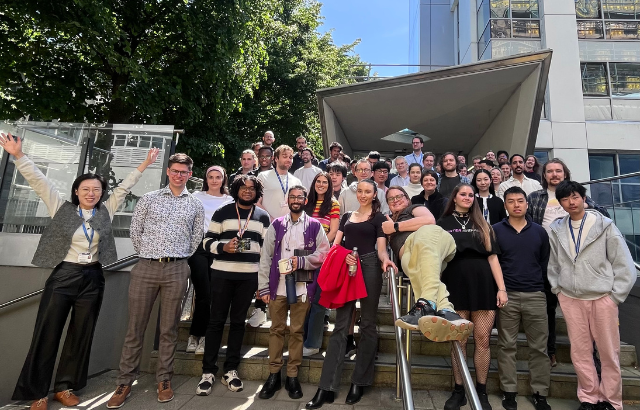Postgraduate Research Day 2025 celebrates student achievements in Mathematical Sciences
Queen Mary’s School of Mathematical Sciences recently held its annual Postgraduate Research (PGR) Day, a vibrant celebration of the originality, rigour, and creativity of our PhD student community.

As the school’s largest event dedicated to postgraduate researchers, it brought together more than 70 attendees, including students, academics, and guests, to engage with cutting-edge research and foster academic exchange.
The event is an integral part of our postgraduate community, offering students an invaluable opportunity to present their work, refine their communication skills, and connect with diverse audiences. It plays a vital role in their professional development, preparing researchers to articulate complex ideas clearly and with confidence.
“It was inspiring to see the range of topics and the clarity with which students explained their research,” one attendee shared. “Events like this remind us how mathematics continues to evolve and connect with real-world challenges.”
The day featured research talks by third-year PhD students, while second-year students presented their projects during a lively poster session. The breadth of work on display highlighted the richness and diversity of research within the School. Moreover, a number of outstanding presentations were recognised with prizes.
Presentation Prizes were awarded to:
- 1st: James Kiln - ‘Modular forms and Galois representations’
- 1st: Alexandra Valavanis - ‘Inversion of Neural Networks’
- 3rd: Norberto Lucero-Azuara - ‘Modelling the movements of organisms by stochastic theory’
Poster Prizes were awarded to:
- 1st: Jakub Dobrowolski
- 2nd: Catherine Rust
- 3rd: Ahmed Zaid
The People’s Choice Prize was awarded to:
- Yuhan Li
PGR Day is a powerful reminder of the essential role our postgraduate students play in pushing the boundaries of knowledge. Their work not only contributes to fundamental scientific understanding but also opens pathways to applications in technology, healthcare, and data science.